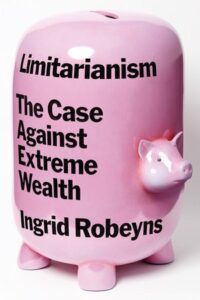 Welcome to the latest installment of “Five words from …” our series which highlights interesting words from interesting books! In this book, Ingrid Robeyns, the Chair in Ethics of Institutions at the Ethics Institute of Utrecht University, outlines the principle she calls limitarianism—the need to limit extreme wealth.
Welcome to the latest installment of “Five words from …” our series which highlights interesting words from interesting books! In this book, Ingrid Robeyns, the Chair in Ethics of Institutions at the Ethics Institute of Utrecht University, outlines the principle she calls limitarianism—the need to limit extreme wealth.
The story that most economics professors will tell is that, in the early 1970s, Keynesian economics lost ground when the world’s developed economies experienced stagflation—a combination of high unemployment, slow economic growth (stagnation), and rising prices (inflation).
“Kleptocracy literally means “rule by thieves” (from the Greek kleptes, ‘thief’, and kratia, ‘power’ or ‘rule’)—we’re talking here about heads of state and political leaders who loot their own countries.”
“Putin’s Russia and Berluconi’s Italy are two particularly memorable examples, but we would be prudent not to assume that widespread state corruption only happens somewhere else—just think of the UK’s ‘chumocracy’ scandal in 2020 or of Donald Trump’s attempt to rig the 202 presidential election in the US.”
“Still other proposals for a new economic system argue that we should start by replacing our obsession with GDP growth with an ambition for sustainable prosperity, sometimes known as ‘degrowth’.”
“As the granddaughter of a former president of General Motors, [Jessie] O’Neill is herself from the third generation of a wealthy family, and has also worked as a therapist. She coined the term ‘affluenza’ to denote the harmful psychological effects of extreme wealth, especially on children.”